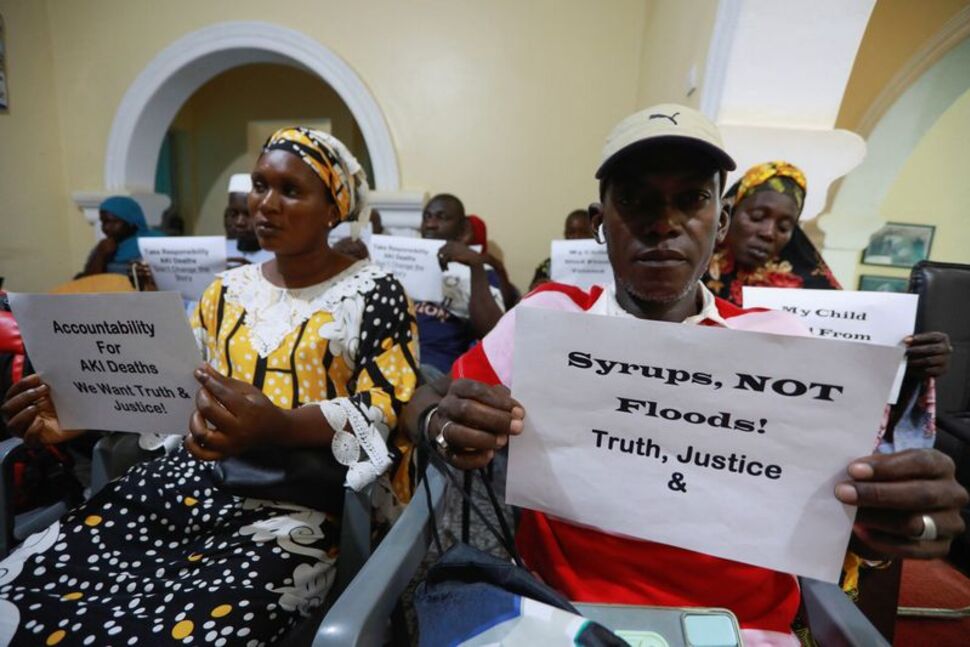Following hundreds of deaths abroad caused by tainted cough syrups, the U.S. FDA is taking action against lax testing procedures used by dozens of healthcare product manufacturers.
According analysis of agency import alerts and warning letters to manufacturers, the Food and Drug Administration has reprimanded at least 28 companies this year for failing to demonstrate sufficient testing of ingredients used in over-the-counter drugs and consumer products for the toxins ethylene glycol (EG) and diethylene glycol (DEG).
The producers include U.S.-based businesses as well as exporters from Egypt, South Korea, India, South Korea, Switzerland, and Canada.
In 2023, the FDA has issued more warnings to firms for failing to test raw materials that could be contaminated with EG and DEG than it did in the previous five years put together, according to a Reuters study.
According to the FDA, there is no evidence that DEG and EG-contaminated goods have reached the American supply chain, and the quantity of warning letters sent out over a specific time period “is not a comprehensive marker of our oversight.”
The FDA is now asking manufacturers to verify individual containers of ingredients rather than just sampling raw components, according to Peter Lindsay, a lawyer with Paul Hastings in Washington, D.C., who specializes in FDA regulation and compliance.
He claimed that they were “raising the bar a little bit” and attempting to educate the business community about some of the dangers there.
More than 300 infant deaths worldwide have been attributed to cough syrups produced in India and Indonesia. The drugs’ high DEG and EG content was proven to cause acute renal damage and mortality.
The poisonings have triggered criminal investigations, legal action, and increased regulatory monitoring on a global scale. Earlier this month, Reuters revealed that some of the linked Indian drugmakers were unable to demonstrate that they had obtained pharmaceutical quality ingredients or tested their medications for toxins.
In the 1930s, more than 100 individuals, mostly children, perished in the United States from DEG poisoning, which led to regulations that considerably enhanced regulatory power over drugs.
However, until May 2023, the EPA did not set forth specific guidelines for testing high-risk substances such propylene glycol (PG) and sorbitol solution for EG and DEG.
To stop the distribution of DEG-contaminated items, previous recommendations from 2007 that specific tests be done on glycerin, another prominent constituent in over-the-counter medicines and consumer goods. For DEG and EG, the same level of examination is now required for PG and other high-risk components.
TRANSPORT ALERT
Manufacturers have a chance to correct quality control issues by responding to FDA warning letters before facing consequences.
28 American and international manufacturers have received letters threatening to halt exports, imports, and new medicine applications if testing procedures are not improved.
Additionally, half of them got import alerts, which let customs agents hold at-risk goods without looking them over and prevent them from entering the country.
According to the letters, eleven of the companies the FDA singled out this year sold some of their at-risk goods to kids, including toothpaste, sunscreen, and medications for pink eye and diarrhea.
On August 17, the FDA issued a warning to Florida-based Lex, a contract producer of children’s cough and cold medications, for lax testing and recurrent quality-control breaches dating back to 2004.
When they receive materials that could be contaminated with EG and DEG, according to co-owner and Lex spokesperson Charlene Paz, the company conducts all necessary tests for contaminants.
Due to their inability to demonstrate adequate quality control, 14 foreign firms who offered products that could cause DEG and EG poisoning were added to import alert lists. They include the South Korean company LCC, which manufactures Oriox and other mouthwashes, and the Indian companies Suhan Aerosol and Orchid Lifesciences, which produce toothpaste.
According to an LCC spokeswoman, the business is currently responding to the FDA. According to Suhan and Orchid, neither EG nor DEG were present in their goods.
Due to their failure to comply with requests for records, four out of the 14 companies were added to an import alert list. They are KM Pharmaceutical and Sangleaf Pharma from South Korea, as well as Daxal Therapeutics and Skyline Herbals from India. They were unavailable for remark.
Additionally, the FDA warned 13 American manufacturers of consumer goods such earwax removers, nasal spray, hand soap, and shampoo, including Lex, with probable seizures and injunctions.
The regulator claimed that, among other failings, they had neglected to carry out necessary contamination checks and in a number of instances relied on suppliers’ certificates of analysis for the purity of their products.
The challenge of policing every consumer product was mentioned by Greg Landry, a pharmacology and toxicology specialist at Massachusetts College of Pharmacy & Health Sciences. He added that when the FDA learns of a problem, “their response is usually swift and mighty.”

